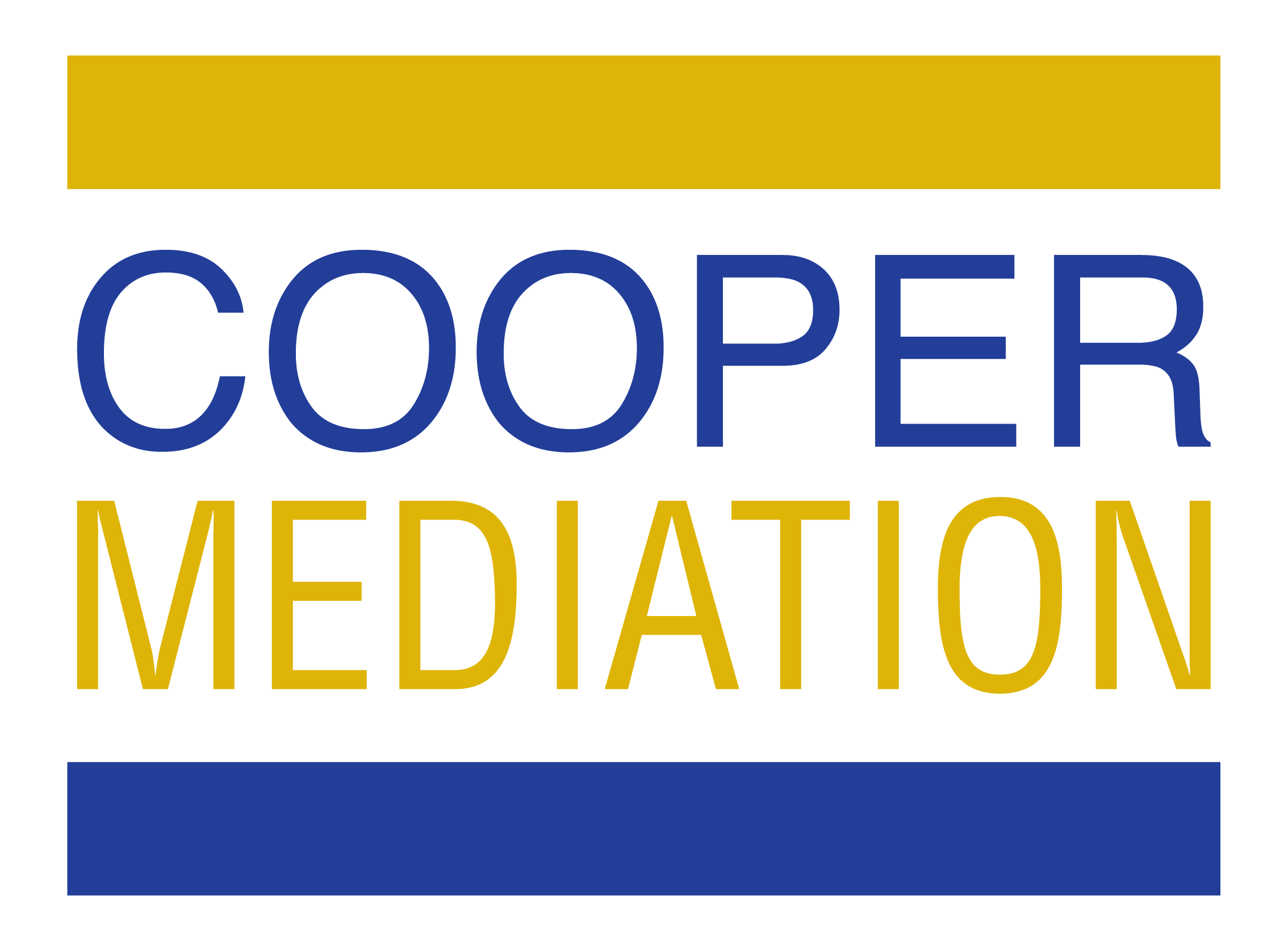
15 May Top 10 Do’s and Don’ts For Effective Mediation
In some judicial venues in Ontario [Toronto, Windsor and Ottawa], the parties must mediate in advance of the pre-trial conference. In all other jurisdictions, mediation is optional.
1. Don’t Mediate as a Matter of Course
Direct settlement negotiations should always be thoroughly considered before proceeding to mediation.
Mediation invariably requires compromise. In some cases, which I suspect are few and far between, your client may occupy the litigation “high ground.” You or your client may be disinclined to compromise to any great extent. These cases may not lend themselves to mediation and may be more suited to a judicial pre-trial conference.
2. Do Consider the Timing for the Mediation
Once again, the judicial venue will have a significant bearing on your choices in this regard. In Toronto, Ottawa and Windsor, mediation must take place in advance of the pre-trial conference. Mediation in Toronto frequently occurs at least two years in advance of the anticipated trial date. Unfortunately, neither side may feel any particular urgency as there is no impending trial. In some cases, consider a perfunctory mediation with a more meaningful mediation to be scheduled closer proximity to the trial date.
3. Do Diarize the Date for the Mediation and All of the Necessary Steps Leading to the Mediation
The mediation is likely to take place several months from the date it was booked. I am a strong proponent of the notion that one needs to “work backwards” from the target date or event.
Defence counsel should inform counsel for the plaintiff as to when they require reports from experts and the plaintiff’s mediation memorandum if such material is to be considered by their institutional / corporate clients.
Mediators will frequently request that briefs be delivered two to seven days in advance of the mediation.
I suggest that…
- Counsel for plaintiffs establish a diary date at least 30 and preferably 45 days from the date of the mediation for purposes of delivering your mediation memorandum and all experts’ reports.
- Defence counsel send their mediation memorandum at least 7 days in advance of the mediation and that counsel for the plaintiffs forward the defence memorandum to their clients.
- Defence counsel should disclose the results of their investigation and surveillance in advance of the day of mediation.
I encourage counsel for plaintiffs to produce a list of assessable disbursements in conjunction with their mediation memorandum.
4. Do Meet With Your Client Several Days in Advance of the Mediation
Mediation may be the single most important event in the course of the plaintiff’s claim. They are likely new to the process. As a result, their behaviour / presentation and their expectations at the mediation need to be managed.
The plaintiff should be:
- Advised regarding appropriate dress and grooming.
- Pleasant, whether they mean it or not, including shaking hands with all those in attendance, listening or appearing to listen, and making appropriate eye contact.
- Advised as to what they can expect to hear from the mediator and, more importantly, from defence counsel.
- Advised of the importance of managing their expectations.
Likewise, the insurance representative should be:
- Sincere, whether they mean it or not.
- Interested in submissions or, at least, appear to be.
- Encouraged to speak at the mediation (but their message should be screened in advance).
5. Don’t Read Your Mediation Memorandum as Your Opening Statement
Counsel should make every possible effort to say something about their client’s claim or about the defence position or both which is both new and constructive.
I would suggest that you identify the key points of agreement, the key points of disagreement and suggest strategies or ways or means to resolve those points of disagreement.
Make the submissions that matter most at the beginning, work through the balance of your comments in declining importance and conclude by reinforcing the important points at the end.
In addition, your concluding remarks should be conciliatory and indicate how you foresee compromise occurring, from both sides, with a view toward working out a mutually acceptable solution to the problem common to the parties.
6. Don’t Personalize Your Opening Statement / Remarks
Don’t ever forget that the dispute is that of your client and not yours. Treat opposing counsel and the plaintiff or insurance representative in a polite and respectful manner. Do not denigrate their position or evidence upon which they rely on.
Overall, the tenor of your remarks should be firm but fair with a strong dose of conciliation and a desire to work with those at the table to find a mutually acceptable solution to the problem.
7. Do Ask the Mediator for Advice and Feedback Before and During the Mediation
The mediator must be neutral and respect the nature of any confidential communications. Once the ground rules have been established, use the mediator as a sounding board or negotiation coach. The mediator may be able to assist you in presenting your opening remarks in a more digestible format.
8. Do Your Homework
According to Sun Tzu, a Chinese general and military strategist (~400 BC), “Keep your friends close and your enemies closer.”
Everyone, be that an individual or a corporation, has a negotiation style.
There are insurance companies which embrace mediation; others treat mediation as the legal equivalent of “exploratory surgery.”
Similarly, defence firms and the individual lawyers within the firm have their own negotiation styles. Some will start the negotiation aggressively with low offers and move into the “settlement strike zone” as settlement demands from the plaintiff do likewise. Others will start low and stay low. Some will never make an offer in the “settlement strike zone.”
There are counsel for plaintiffs who may not embrace the mediation as a serious or earnest settlement opportunity. They may be trying to determine your views on the weaknesses of their case with a view toward attempting to plug those holes and repair those weaknesses going forward. They may be trying to determine your best offer at mediation with a view toward creating a floor for discussions and negotiations going forward.
The important point is to understand your adversary and prepare yourself and your client for what you anticipate in the upcoming mediation.
9. Don’t Expect the Mediator to Work Magic
If counsel for the plaintiff has not laid the foundation or groundwork for expectation management in relation to the plaintiff, the mediator will be hard pressed to assist you at mediation.
Similarly, if the insurance representative attends with authority which is significantly below that which was recommended by the defence counsel or originally sought by the insurance representative, the mediator will have great difficulty performing miracles [if indeed that is part of a mediator’s job description].
10. Do Utilize the Mediator After the Mediation if the Matter Does Not Settle at the Mediation
The mediator should be prepared to conduct a post mortem assessment of the mediation, subject to appropriate considerations of neutrality and confidentiality.
The mediator should be prepared to follow-up through phone calls and emails to explore settlement prospects once the impediments to settlement at mediation have been identified and addressed.
Conclusion
The best rule applicable to mediation is that there are not rules. Be creative, thoughtful and innovative. Do not be a slave to prior precedents, be that written material or opening remarks. Mediation is a dynamic process which should test your skills and adaptation. Be curious – why are the parties apart at mediation and what can be done, at mediation or thereafter, to address the situation. Be passionate about your client and their claim or defence but, at the same time, be realistic. Be prepared to roll with the punches and, above all else, embrace and enjoy the process.
If you’d like further tips, click to read the full article.

ABOUT THE AUTHOR
Vance Cooper of Cooper Mediation Inc. is principal of Cooper Mediation Inc. Vance devotes 100% of his professional time to mediating and arbitrating primarily personal injury and insurance cases. He serves as an arbitrator in loss transfer and priority disputes under the Insurance Act.
Vance can be reached at vance@coopermediation.ca or (647) 777-4011. To schedule a mediation with Vance, visit: http://coopermediation.ca/vances-online-calendar/.
